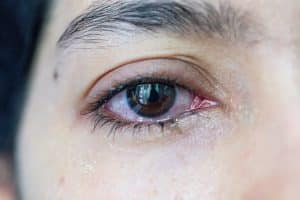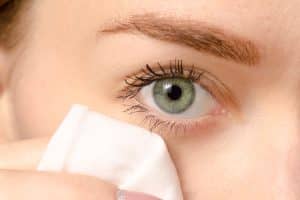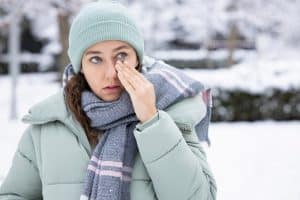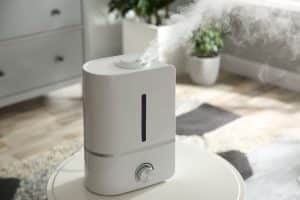Getting a bad night’s sleep can feel awful, and especially so when you know it’ll put you at higher risk of developing irritating side effects such as dry eye syndrome and eye strain.[1] But sometimes, figuring out how to get better rest can feel impossible.
In this article, we explore various ways to help yourself to get better quality sleep.
How to get better sleep
If you’ve shared your sleep struggles with friends or family members, you’ve probably been recommended dozens of things that will supposedly help you to sleep better at night. Unfortunately, it can be hard to tell what will actually work and what is nothing more than an old wives’ tale. Below, we discuss our favourite tried and tested sleep tips.
1. Use eye drops to relieve itchy, tired eyes
Dry, itchy or irritated eyes are no fun, and they can be even more disruptive at night. Having eye strain or dry eyes can keep you up when you’d rather be getting some sleep, but there are things you can do to rectify the situation. Both conditions can be caused by environmental factors, so it’s worth trialling different changes to your lifestyle to see what works.[2]
In the meantime, you don’t need to suffer dry eyes at night, especially if they’re keeping you up. By using eye drops like TheraTears® Overnight Eye Drops, you can take advantage of hydrating preservative-free eye drops with cross-linked hyaluronic acid to replenish the moisture in your eyes.
2. Ensure your room has optimal conditions
A big part of getting a good night’s sleep is setting yourself up for success by making sure your sleeping environment is perfect for you. Think about factors such as lightness, temperature, the quality of your mattress and bedding and more – fully customise your bedroom to make it as comfortable as possible for you.
Reducing screen time altogether can also help you to fall asleep more easily, especially if you have a habit of using screens right before bed.[3]
3. Reassess how you use your bed
Our brains function on associations, so it’s important to make the right ones. In order to sleep well, it’s good to associate your bed with sleep as much as possible – and that means not associating your bed with watching TV, gaming or scrolling through social media.
As much as you can, try to stop using your bed for those other tasks that are better suited to other areas of your home such as your living room or office, as this will encourage your brain to wind down to sleep when you settle into bed.[3]
4. Consider what you eat and drink
Believe it or not, the foods and drinks you consume can have a big impact on your sleep quality. Many people are aware that caffeine can keep you awake, so try to avoid caffeinated drinks from 2 p.m. onwards to give yourself the best chance of dropping off swiftly. But it’s also true that drinking alcohol can affect your sleep quality, even if you usually find alcohol makes you sleepy. Even drinking as little as a single unit can affect your rest!
As for food, it’s a good idea to maintain a healthy, balanced diet for the benefit of your overall health and wellbeing. But sometimes it’s not about what you eat, but when you eat it. Sleep is more difficult when your body is wide awake digesting a recent meal, so aim to finish eating at least two hours before bed.[3]
5. Speak to a healthcare provider
Lastly, if none of the tips and tricks laid out above have made it easier for you to get the right amount of good quality sleep, then it’s time to consult a medical professional. Speaking to a doctor or pharmacist about sleep troubles can help you get one step closer to identifying the underlying problem and finding a solution that allows you to get the rest you need.[3]
Resources:
[1] – https://sleepeducation.org/lack-sleep-affects-eyesight/
[2] – https://www.nhs.uk/conditions/dry-eyes/
[3] – https://www.sleepfoundation.org/sleep-hygiene/healthy-sleep-tips







